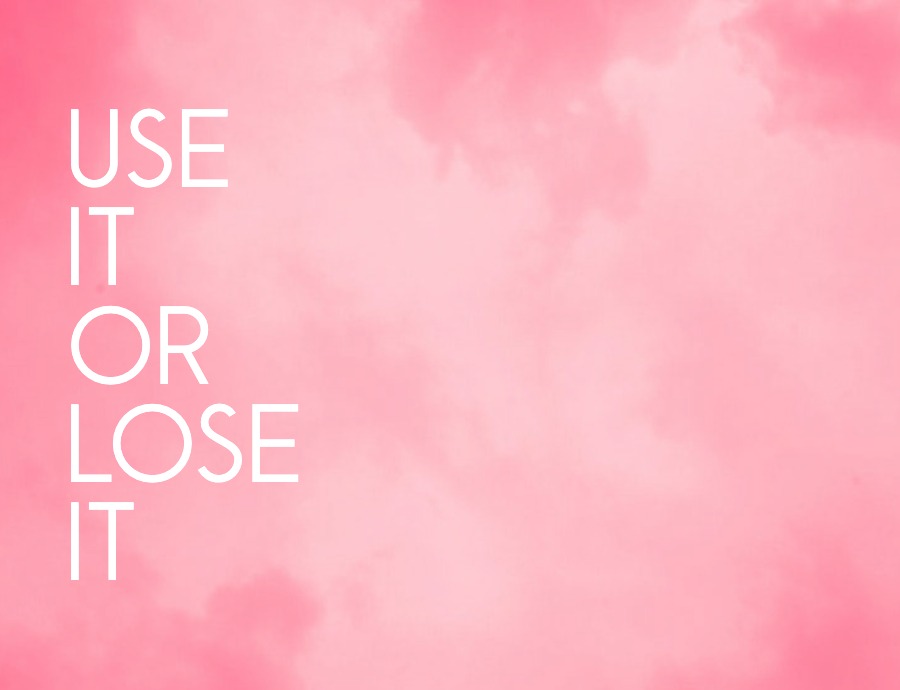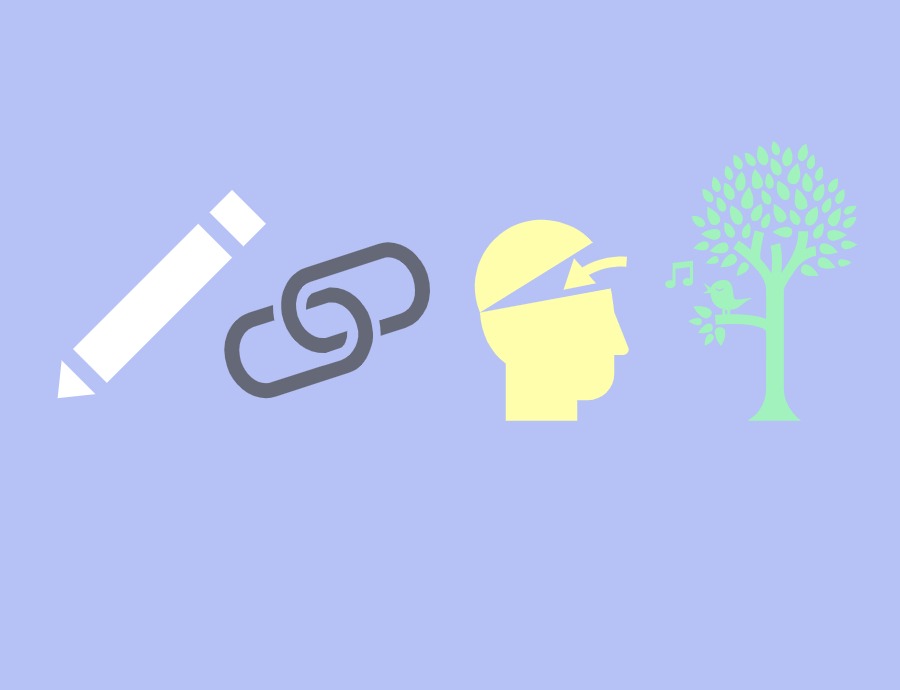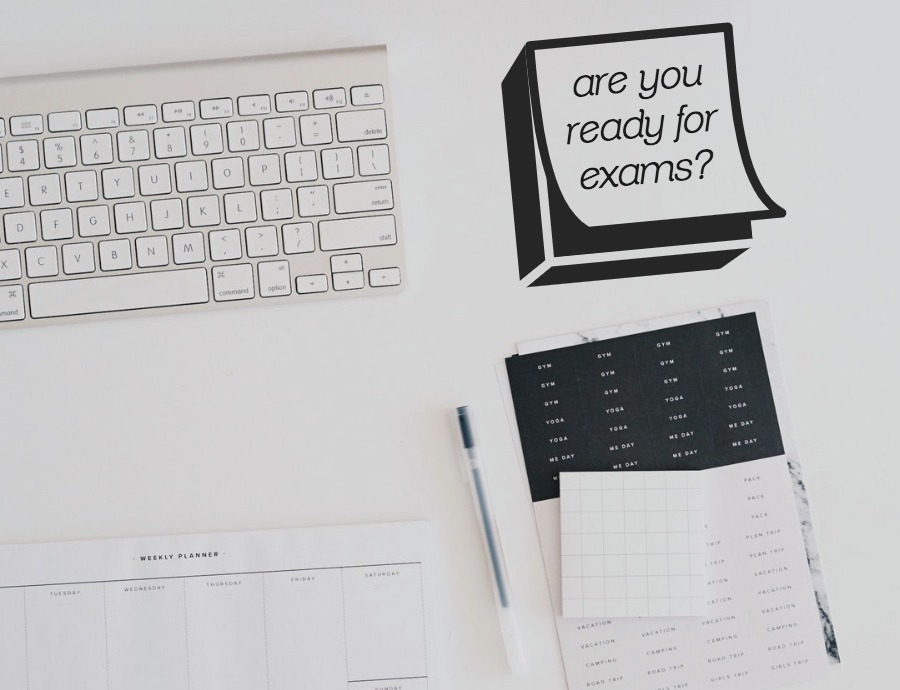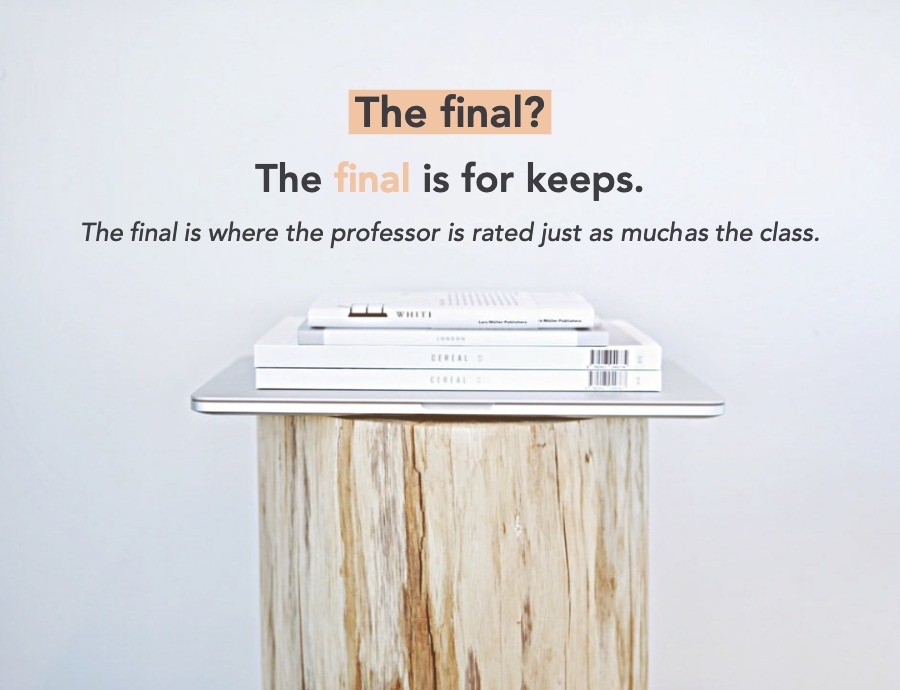You’ve spent a solid hour studying, you’ve read everything in the chapter, you’ve re-read the key points and examination guidelines, so you slam the book closed with a satisfied smile. Thereby flushing every fact in your head straight down an imaginary toilet. If you didn’t do some examples, you didn’t do any study at all.
Our brains defend themselves against the world by forgetting as much as possible. Almost everything! All the time! We’re under constant assault by overwhelming amounts of information. How many steps did you take before sitting down to read this? How many windows were on the last building you passed? How many tweets did you scroll through before opening this article? It’s all input, it’s all noticed, and if your brain didn’t dedicate a big chunk of itself to deleting as much information as possible you’d fill up and freeze up in under a day.
Your brain has to throw away almost everything it learns if it wants to keep working. What does it keep? The things it uses! People remember passwords and bus routes because they use theme every day. They forget course constants and equations because they safely write those down in notes, which are safely piled in the corner of a room where they can’t bother anyone .
If you want to remember things you need to run them through your brain, not just your eyes. That means taking ideas and equations then applying them to new situations. Simply reading an example problem isn’t enough. That’s just telling your subconscious “Hey, look at all these things done by other people. Which means I don’t have to worry about them!” Rewrite the problem yourself. Change some values, or the situation. Force your own brain to engage with the equations and apply them on its own. Then they’ll become its own, things it knows it needs and makes an effort to remember.
People read and re-read notes because it’s easier than actually doing anything. That’s the only reason! You won’t be asked to read some notes in the exam hall, you’ll be asked to actually do things, so you’d better study in the same way. Looking at notes for hours before an exam is like looking at photos of Mount Everest before climbing it. You’ll certainly recognize the problem facing you. But you’ll find it much harder to do than just look at.
Our brains defend themselves against the world by forgetting as much as possible. Almost everything! All the time! We’re under constant assault by overwhelming amounts of information. How many steps did you take before sitting down to read this? How many windows were on the last building you passed? How many tweets did you scroll through before opening this article? It’s all input, it’s all noticed, and if your brain didn’t dedicate a big chunk of itself to deleting as much information as possible you’d fill up and freeze up in under a day.
Your brain has to throw away almost everything it learns if it wants to keep working. What does it keep? The things it uses! People remember passwords and bus routes because they use theme every day. They forget course constants and equations because they safely write those down in notes, which are safely piled in the corner of a room where they can’t bother anyone .
If you want to remember things you need to run them through your brain, not just your eyes. That means taking ideas and equations then applying them to new situations. Simply reading an example problem isn’t enough. That’s just telling your subconscious “Hey, look at all these things done by other people. Which means I don’t have to worry about them!” Rewrite the problem yourself. Change some values, or the situation. Force your own brain to engage with the equations and apply them on its own. Then they’ll become its own, things it knows it needs and makes an effort to remember.
Just reading notes for an exam is like looking at photos of Mount Everest before climbing it.
People read and re-read notes because it’s easier than actually doing anything. That’s the only reason! You won’t be asked to read some notes in the exam hall, you’ll be asked to actually do things, so you’d better study in the same way. Looking at notes for hours before an exam is like looking at photos of Mount Everest before climbing it. You’ll certainly recognize the problem facing you. But you’ll find it much harder to do than just look at.








